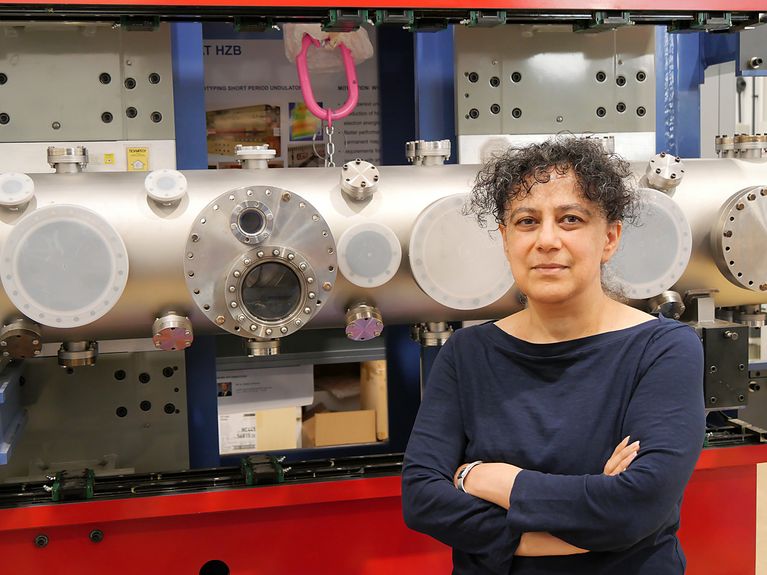One of 47,000
Three questions for Atoosa Meseck

Image: HZB
Atoosa Meseck is a physicist at the Helmholtz-Zentrum Berlin and a professor at Johannes Gutenberg University in Mainz. Together with her team, she develops concepts and magnetic systems to generate light for experiments at accelerator facilities. She enjoys it when physics surprises her.
What’s the most exciting thing about your job?
I work with a team of 15 colleagues on so-called undulators – essential components for synchrotron radiation sources. Electrons are accelerated to nearly the speed of light at these facilities. Our magnetic systems set them on a slalom course, causing them to emit energy in the form of light: synchrotron radiation. Researchers around the world use this unique light for their experiments – for example, to develop new batteries or catalysts. We develop and manufacture the undulators ourselves, often as customized individual pieces. We also supply them to other international research centers, paving the way for exciting research.
My work is about the interactions between matter and light. What fascinates me most is when we discover that physics behaves differently than expected. We take nothing for granted – and it is precisely these surprises that drive me as a scientist.
If money and time were no object, what would your next project be?
I often think back to a topic from my postdoctoral research: cloaking and metamaterials. Materials’ refractive index can be manipulated in such a way that objects coated with metamaterials appear to be invisible. And I’m convinced they could do much more. For example, we could use them to develop new types of optics for our beamlines. We currently direct the light generated in accelerators to various experiments one after the other. With metamaterials, the light could potentially be distributed to several experiments at once – which would be much more efficient and put the beam to better use! I’m very excited about trying out such approaches. Our successor source BESSY III could also benefit from this.
If you could choose anyone, who would you like to have dinner with and what would you talk about?
I would like to talk to Joschka Fischer about the responsibility of science, especially when it comes to research with potential military applications. Where does the responsibility of researchers end and that of politicians begin? As a politician, Fischer has seen firsthand that you always have to weigh your own ideals against the political realities. Talking with him would certainly be very informative.
Readers comments